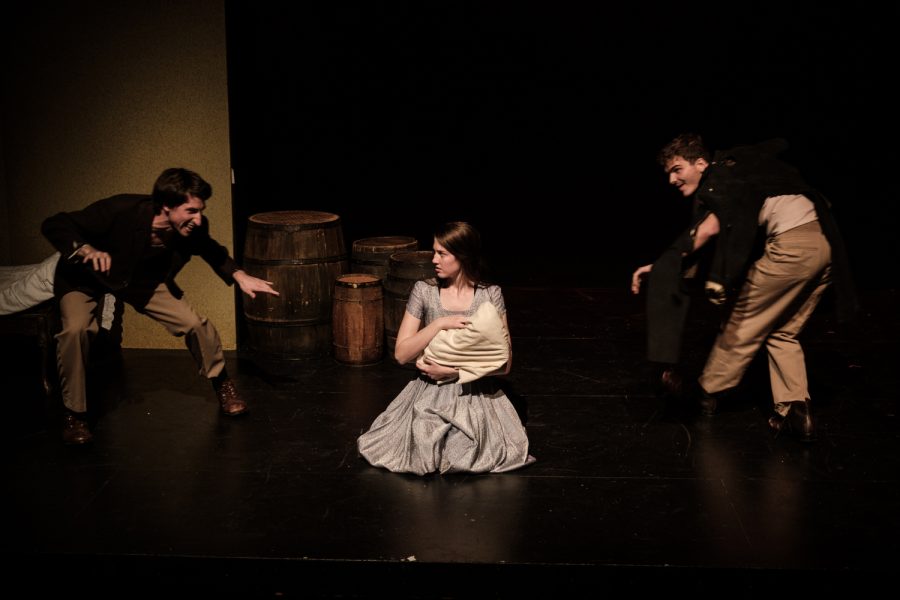UI premieres original play that centers plight of the Punjabi
A century after one of the most brutal massacres in Punjabi history, the UI Theater Department is premiering an original play that brings their story to the stage.
Actors perform during a dress rehearsal of “We All Were Sunflowers” at the Alan MacVey theater on Tuesday, October 29, 2019. The play is directed by Brad Pickhinke and will open on October 31 and run through November 3.
October 30, 2019
In 1919, hundreds of Punjabi people were killed by British imperialists in the Jallianwala Bagh massacre. One hundred years later, the University of Iowa Theater Department is bringing their story to life in an original play, called We All Were Sunflowers.
The play, written by Ikram Basra, is based on the true story of a survivor who, after 20 years of fighting against imperialism, would kill the general that ordered the slaughter of his people, and become instrumental in the effort to free India and Pakistan from British rule.
“In my opinion, he played a more significant role than even Gandhi,” Basra said.
Basra is currently living in Iowa to participate in the Iowa Playwrights Workshop, but he grew up only 100 miles from where the massacre occurred. He learned about it from his grandparents and the elders of his village, who lived through the imperialist rule.
“I grew up in the same dirt, in the same seasons, but when I was writing it, I distanced myself as a Punjabi,” Basra said. “I thought if I wanted to have a neutral look on this, I should view it as a third party.”
The play, which originated from a poem that Basra had written, took him about 10 months to write, and he said he’s thrilled to see it adapted to the stage.
“It’s important for this part of the world to know this history,” Basra said. “There’s a very cliché quote, but I think it’s really relevant: ‘Those who do not learn from history are doomed to repeat it.’ I think what’s happening in the Middle East right now isn’t different from what was happening 100 years ago in India.”
The play’s lead, Brandon Treviño, said he feels a great responsibility to represent history and his character accurately and respectfully.
“I think I can speak for all of us when I say we’re more than excited to bring this story to life,” Treviño said. “We know that our identities within our cast don’t represent the identities of the people in the story, so it’s an honor to have someone who does represent their identity come to us and trust us to represent their history.”
RELATED: The art of Odissi dancing comes to Englert
None of the cast members are of Punjabi descent, but that’s not the only casting challenge they faced. There are 32 characters in the show, but there are only 11 actors to play them.
Director Brad Pickhinke said costuming played a part in differentiating characters played by the same actor, but the team worked hard to make them not only look different, but feel different.
“We worked with the actors on where to place the energy in their bodies,” Pickhinke said. “We did a lot of movement workshops and voice workshops to deal with that challenge.”
Another challenge the team faced was incorporating special effects into the performance while working under the constraints of a budget.
“Sometimes, it can be frustrating because you go in there with these big ideas, and you kind of have to backpedal a little bit, but I think great theater comes from those moments,” Pickhinke said. “When you have to make these tough choices, it pushes your imagination and creativity. It’s a really wonderful experience, even if it can be frustrating at times.”
We All Were Sunflowers opens today and closes on Nov. 3. Treviño hopes that the audience will take away this lesson: “Life isn’t fair, but the people in it can be,” and that there needs to be more love for one another in the world.



